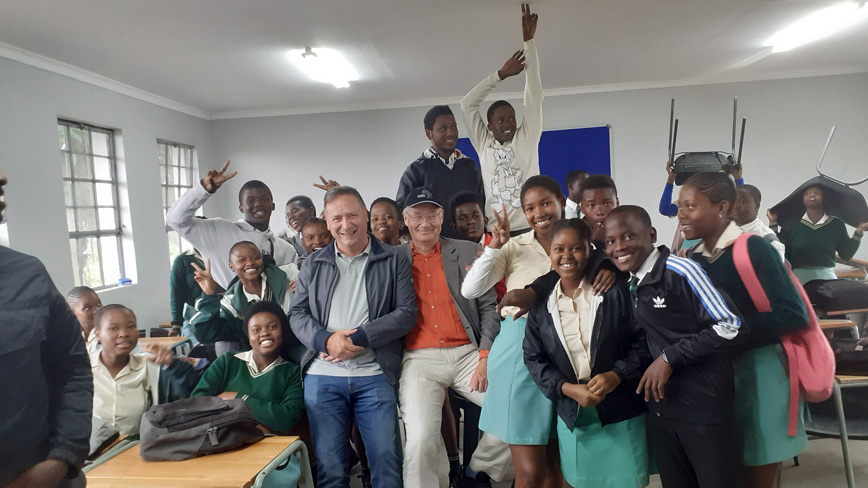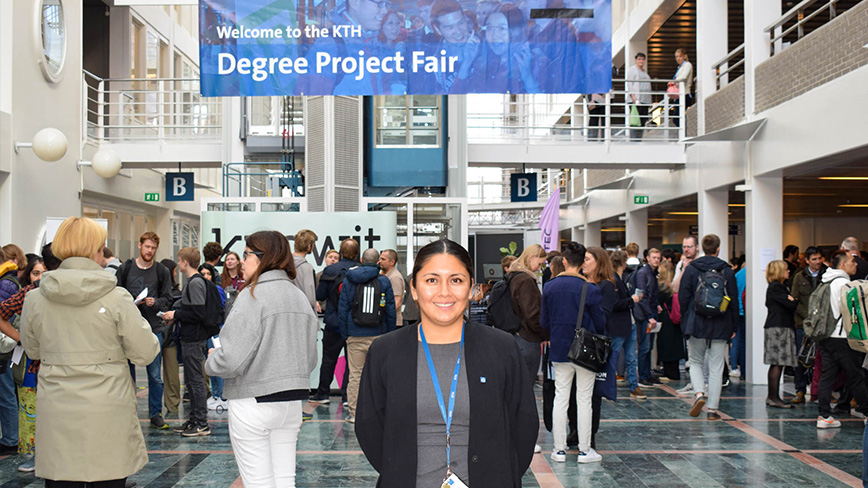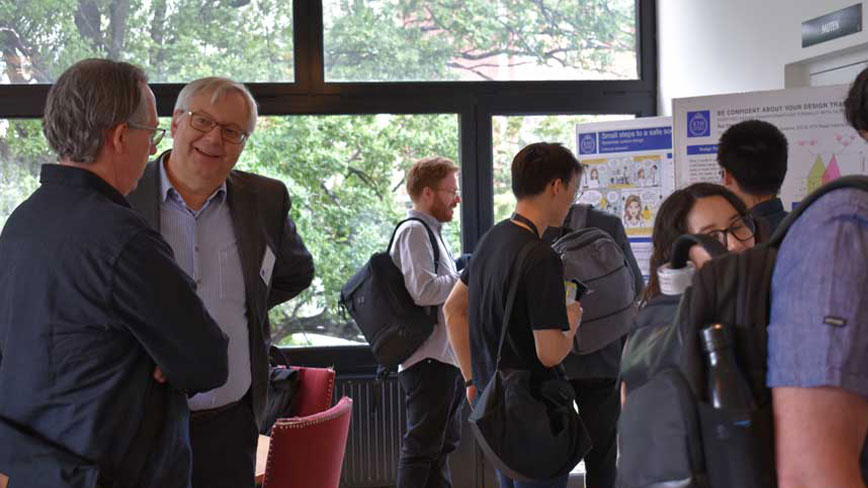Nobel in Africa discusses predictability in Science
Nobel symposium

The Nobel Symposium “Predictability in Science in the age of AI” brings together leading experts in AI and sciences to discuss and explore various issues, including the limits of the Big Data approach.
Erik Aurell, professor of Theoretical Biological Physics at KTH. Can you give us a short description of the Nobel symposia and its importance for the collaboration between KTH and other universities worldwide?
Nobel symposia have been organised since the 1960s and bring together experts at the highest level to discuss topical issues. These have been hosted in Sweden but recently a new line, the "Nobel in Africa" series, has been launched, the most recent one in October, in Stellenbosch, South Africa. Mr Peter Wallenberg Jr and other representatives from the Wallenberg Foundations participated in the launch event. It was good publicity that a KTH representative convened the first "Nobel in Africa" symposium.
We developed excellent contacts with Stellenbosch University and the University of KwaZulu-Natal in Durban during the symposium and preparation phase. We also started interesting new interactions with LMU Munich and the University of Edinburgh.
What is your impression of the discussions taking place at Stellenbosch University?
Stellenbosch has strong teams in quantum science led by Francesco Petruccione, and genomics and epidemiology with Tulio de Oliveira in the front. We had excellent discussions around quantum machine learning with Petruccione and Maria Schuld, who is generally considered a pioneer in this area. She works at the University of KwaZulu-Natal and is the chief scientist of Xanadu, a Canadian quantum computing company. Stellenbosch and, in particular, the STIAS centre are very efficient at organising conferences and outreach.
Stellenbosch has a gorgeous campus and gorgeous surroundings, great for hiking. The town has fantastic sports facilities. In contrast to many other places in South Africa, it is safe to walk outside at night. The cuisine in Cape Town and Stellenbosch is very innovative and of very high quality.
What kind of research breakthroughs may solve some of the challenges society faces in the next 5-10 years?
Tulio de Oliveira has been at the forefront of applying genomics to the COVID pandemic worldwide. His team discovered both the Beta and the Omicron variants of the virus. German PM Olaf Schultz recently awarded him the Germany-Afriva prize. His use of genomics to track infections in communities and institutions to combat them better impressed us. He described the charting of a disease outbreak in a South African hospital. I have never seen anything near this level of clarity of analysis elsewhere. Infections in hospital and care-home settings are a growing problem worldwide. We saw it in Sweden during the pandemic. The approach of Prod de Oliveira could well become critical in addressing this crucial societal problem. Sweden has much to learn from the South Africans on leveraging sequencing and genomics to combat pandemics.
What is your best impression of the trip? What do you take with you from the visit to South Africa?
People are extremely friendly, generous and flexible in adapting to changing plans.
If I can highlight one event, it would be the outreach session which Prof Luca Gammaitoni and I conducted at a high school in a deprived neighbourhood outside Durban. You could see on their school uniforms that these kids came from struggling families, and the school lunch was rice porridge. But their curiosity in asking questions and joy in getting a visit from the outside was overwhelming.
Related news

Nobel in Africa discusses predictability in Science
The Nobel Symposium “Predictability in Science in the age of AI” brings together leading experts in AI and sciences to discuss and explore various issues, including the limits of the Big Data approach...
Read the article
The Degree Project Fair 2022 – a success
42 companies, 12 research groups and almost 300 KTH students met at the annual Degree Project Fair at KTH Kista. It was bursting with energy when the students met companies such as ABB, Ericsson and I...
Read the article
Two days on the latest within software
The software research centre CASTOR organised its second conference on 31 August to 1 September at KTH Nymble. Software researchers, engineers, and students gathered to discuss cutting-edge technology...
Read the article